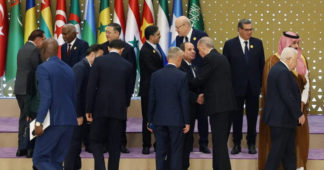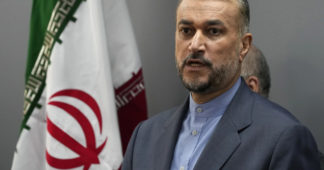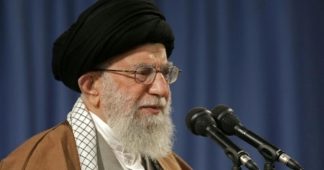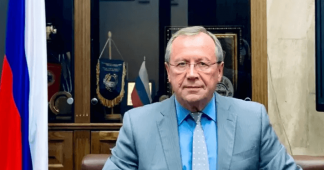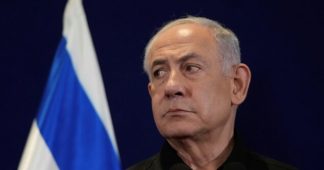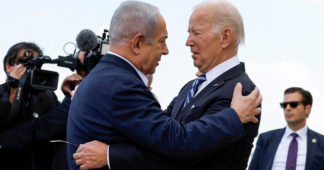State leaders attending an ’emergency’ summit on Gaza over the weekend in Riyadh did not agree on a final statement, as some have refused to take concrete action against Israel.
Nov 13, 2023
Gulf state leaders are opposed to Iran’s calls to arm Palestinians against Israel and sever diplomatic ties with Tel Aviv, The Guardian reported on Monday as Gaza’s war entered its 38th day.
An “emergency summit” on Saturday saw 51 monarchs, presidents, and prime ministers from member states of the Arab League and Organisation of Islamic Cooperation (OIC) gather in the Saudi capital, Riyadh, to discuss Israel’s bombardment of Gaza, which has so far killed over 11,000 people.
Iran – whose president was the first Iranian head of state to visit Saudi Arabia in 11 years – was one of the states that called for tough measures against Israel to force it to end its aggression on Gaza. This included Muslim countries arming the Palestinians, and ending Arab-Israeli diplomatic and economic relations.
Iranian President Ebrahim Raisi also called on participating state leaders to label Israel a “terrorist organisation”.
There was disagreement after Saturday’s summit in Riyadh, as members fell short of taking practical steps or agreeing to any of Iran’s proposals.
While the Arab and Muslim leaders denounced Israel and expressed support for the Palestinians, states which recognise Israel have refused to cut ties.
Egypt, Jordan, the United Arab Emirates, Bahrain and Morocco all have relations with Israel. The latter three countries normalised ties in 2020. These ties have brought about close diplomatic, military, and security cooperation, as well as flourishing trade.
Iran has in recent years worked on mending relations with Arab states. In March this year, a surprising China-brokered deal saw Riyadh and Tehran repair broken ties and later reopen their embassies.
While Iran is not directly involved in the Gaza war, it has backed militant groups in Lebanon, Syria, Iraq and Yemen which have since 7 October attacked Israel, as well as US interests in the region.
Hezbollah, a powerful non-state actor in Lebanon, has been involved in cross-border fighting with Israel which has seen dozens killed and tens of thousands displaced.
Houthis in Yemen have fired rockets and drones at Israel, while militias in Syria and Iraq target bases housing US and other international forces.
Israeli ground forces have continued to push deeper into Gaza, encircling nearly the entire northern part of the enclave and laying siege to a main hospital. Jets continue to pound the territory.
Also read
The betrayal of the Arab regimes
We remind our readers that publication of articles on our site does not mean that we agree with what is written. Our policy is to publish anything which we consider of interest, so as to assist our readers in forming their opinions. Sometimes we even publish articles with which we totally disagree, since we believe it is important for our readers to be informed on as wide a spectrum of views as possible.
